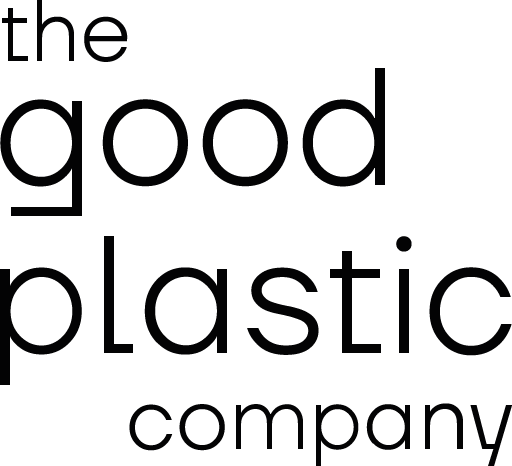Plastic plastic everywhere
Maybe in every drop we drink
Microplastics have been found in human blood.
They are travelling freely in our bodies.
They might get lodged into our organs.
And like the air pollution particles that are already causing early deaths, they too can.
Babies and young children are more at risk.
And this is all coming from the plastic we use.
Once we throw it, it breaks down into smaller particles over time.
These are called microplastics.
And they can be easily transported through water or air.
And enter our food chains.
Ultimately leading to our bodies.
Research is still on to figure out how they can exactly impact our bodies.
In case you would like to know more, start here
For this week, I have 3 startups that are providing multiple lives to plastic⬇️
Can never be sure…Nearly every product is stamped with the recycling symbol these days. So if every other packaging is recyclable, why do we have the trash problem? Simply because less than 10% of recyclable packaging is actually recycled. Consumers have no incentive to recycle. It’s all so confusing. I sometimes throw recyclable products into the garbage because it’s just convenient- who’s going to check and penalize us anyway?
But… what if you can get rewarded for recycling the waste at your home? Sweden-based Bower is an app that rewards users with money or coupons when they recycle everyday waste items. Co-founded in 2015 by a brother and sister team, the free-to-use app allows users to scan anything with a barcode and when they deposit it at a recycling facility, they receive money, coupons or discounts.
Customers can scan the barcode on the packaging and get to know the deposit value.
They can go to their nearest recycling station and deposit them there.
Rewards can be claimed in the form of points – which can be turned into coupons or cash.
The Impact…300,000 users in the Nordic region recycle more than 1.4 million packages every month, and the platform has helped save over 1,000 tonnes (1 million kg) of CO2 to date. Bower counts brands like Nestlé, L’Oréal and Unilever as its partners.
Plastic is not the problem…our consumption habits are. We use plastic for a few hours or days and throw it away. And then it takes centuries to decompose. Till then, it breaks down into smaller particles and pollutes our land and oceans. These particles are present everywhere- they have even been found on top of Mt Everest.
Putting them to good use…The Good Plastic Company is working on changing the single-use mentality. They produce environmentally friendly recycled plastic sheets. These modern-looking plastic sheets can be used to create furniture and interior or exterior design elements.
Each panel is made from a single type of plastic so it can be easily recycled.
They use their own eco-friendly recycling technology.
To cut down on CO2 emissions, they keep their recycling and manufacturing limited to a local area.
The Range…They have been working with brands like Adidas and Nike to help them launch recycled plastic products. Some of their other products include wireless phone chargers, bathroom tiles, restaurant and workspace furniture- all made from recycled plastic.
Not straightforward…Do you ask yourself this- should I throw this into garbage or recycling? Or should I throw some part of it in the garbage and some in recycling? And then get frustrated and do whatever you feel is right. You’re not alone. Packaging these days is complicated. It’s made of different materials. Some can be easily recycled while some can’t. And if it’s made of different materials, it can’t be recycled at all.
App for the scrap…Dan, Evan and Mikey encountered this problem during their time at the University of New Hampshire. They were frustrated to see students getting confused as to what should be recycled. And they set out to solve it by founding Scrapp- an app that makes recycling simple, fun, and rewarding. Whether it’s your plastic pots, paper towels or pizza boxes, Scrapp helps you figure out how to dispose of them.
Similar to bower, customers have to scan the barcode of the product.
Scrapp shows whether it’s recyclable or not, or if there are parts of it that are recyclable.
And if you end up recycling correctly, you can earn points- which can be redeemed with partner sustainable brands.
Revenue streams…Scrapp also has plans to license the packaging data to bigger brands and government agencies. This data would help them understand the environmental impact of brands and how customers are disposing of their products- allowing them to make more planet-friendly products.
🙋Trivia of the week
X is the eighth-most populous city in the world and the second-most populous city in the country.
Recently, it became the first South Asian city to set a firm timeline to become net-zero carbon emissions by 2050.
In January 2022, it posted its worst air quality in a decade, mostly due to a combination of local emissions and a dust storm.
And while it’s the richest city in the country, it is still home to tremendous poverty.
The slums and small fishing villages along the coast are particularly vulnerable to rising sea levels expected in the coming decades.
The process of becoming net-zero has already begun, and in the short term, the city is focusing on projects such as retrofitting low-income homes with electricity-efficient equipment.
By next year it is also planning to purchase a fleet of 2,100 electric buses for $1.7 billion.
Which city are we talking about?
📊Stat of the week
Leaving you with a photo of Dash, a cat we were supposed to foster but ended up adopting.
Thanks and see you next week😄













